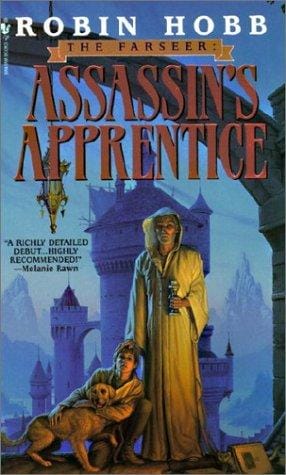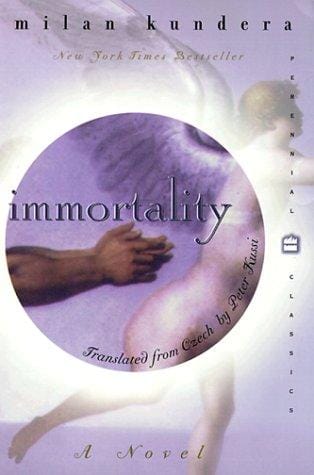Assassin's Apprentice: A Deep Dive into Robin Hobb's Fantasy Masterpiece
Explore Assassin's Apprentice — plot, characters, themes, and why Robin Hobb's debut in The Farseer Trilogy remains a must-read fantasy classic.

Introduction to Assassin's Apprentice
Assassin's Apprentice, the opening volume of Robin Hobb's acclaimed Farseer Trilogy, first hit shelves in 1995 and immediately enchanted fantasy readers with its intimate, character-driven storytelling. While epic sagas often emphasize grand battles and sweeping prophecy, Hobb zeroes in on the quiet, painful coming-of-age of FitzChivalry Farseer—a royal bastard who becomes both pawn and weapon in the political game of Buckkeep Castle. Nearly three decades later, the novel remains a touchstone for fans of immersive world-building, nuanced character arcs, and emotionally resonant prose.
Plot Overview
Set in the Six Duchies, Assassin's Apprentice charts Fitz's life from the moment his grandfather deposits him at the royal keep, declaring him Prince Chivalry's illegitimate son. The child, unwanted by almost everyone, finds himself trained as an assassin for King Shrewd, all while mastering dangerous magic and navigating court intrigue. Throughout the book, Hobb balances intimate scenes—Fitz caring for animals in the stables—with frontier action, as coastal villages are raided by the mysterious Red-Ship Raiders who Forge their captives into soulless husks.
Childhood at Buckkeep
Fitz's early years are marked by isolation. Raised by the stablemaster Burrich instead of his estranged father, he witnesses first-hand the rigid social hierarchy of Buckkeep. Burrich teaches him loyalty and self-discipline, yet forbids Fitz from using the Wit, a telepathic bond with animals that many consider abhorrent. These chapters masterfully show how small acts of kindness—or cruelty—can shape a young mind, foreshadowing Fitz's moral struggles later in the trilogy.
The Assassin's Training
Enter Chade, the king's secretive assassin who dwells in hidden corridors behind the castle walls. Under Chade's tutelage, Fitz learns to blend poisons, scale rooftops, and read the ever-shifting currents of court politics. Parallel lessons in the Skill, a hereditary magic that allows mental communication, add another layer of complexity. The emotional cost of this double training sets the tone for the entire series: every power has a price, and innocence is seldom spared.
Key Characters
Hobb populates Assassin's Apprentice with a memorable supporting cast. King Shrewd is cunning yet frail, ruling through whispered commands. Prince Verity, Fitz's uncle, embodies steadfast duty, dedicating his life to defending the realm with the Skill. Regal, Verity's younger brother, provides the perfect foil—charming on the surface but dripping with entitlement and malice. The Fool, a pale, enigmatic jester, quickly becomes a fan favorite thanks to cryptic prophecies and unwavering loyalty to Fitz. Each character feels alive, with motives that evolve organically instead of serving as mere plot devices.
Major Themes
Identity and belonging lie at the heart of the novel. Fitz is both royal and common, human and Wit-bonded, assassin and healer. His liminal status forces him to question where—and whether—he fits. Loyalty is another central theme: Fitz must weigh personal happiness against duty to king and kingdom, a dilemma that intensifies throughout later books. Finally, Hobb tackles the ethics of power. The Wit is condemned despite its gentleness, while the supposedly noble Skill can consume its user. This inversion pushes readers to reconsider preconceived notions about magic and morality.
World-Building and Magic Systems
The Six Duchies feel lived-in, from the chilly, salt-stung air of the coastal regions to the candlelit stone corridors of Buckkeep. Hobb introduces two distinct magic systems: the Wit, an animal-bonding empathy often met with persecution, and the Skill, a royal telepathy that can amplify or erode one’s mind. Neither magic ever eclipses character agency; instead, both heighten existing tensions. By grounding fantastical elements in emotional realism, Hobb creates a world that is as believable as it is mystical.
Why the Novel Still Resonates
Modern fantasy celebrates morally gray heroes, intricate politics, and intimate stakes—all hallmarks of Assassin's Apprentice. Fitz predates the anti-heroes popularized by later authors, yet his vulnerability sets him apart. Readers see themselves in his small victories and devastating mistakes. Hobb's lyrical prose, meanwhile, rewards slow reading, offering textures and aromas that linger long after the final page. Whether you are a first-time visitor or a returning fan, the story's emotional truths feel timeless.
Reading Order and Editions
To experience Fitz's journey in full, begin with Assassin's Apprentice, then continue to Royal Assassin and Assassin's Quest. Many opt to proceed directly to the Tawny Man and Fitz and the Fool trilogies, which extend his saga across decades. For collectors, anniversary hardcovers feature gorgeous Jackie Morris cover art, while audiobook listeners can enjoy Paul Boehmer's engaging narration. Digital editions often include an excerpt from the next volume, making it easy to stay immersed in the Six Duchies.
Final Thoughts
Assassin's Apprentice offers more than a tale of clandestine blades; it is a meditation on identity, sacrifice, and the high cost of duty. Robin Hobb invites readers to inhabit Fitz's skin, to feel every triumph and heartbreak. If you crave fantasy that privileges human emotion over hollow spectacle, this novel—and the broader Farseer Trilogy—deserves a permanent spot on your bookshelf.



